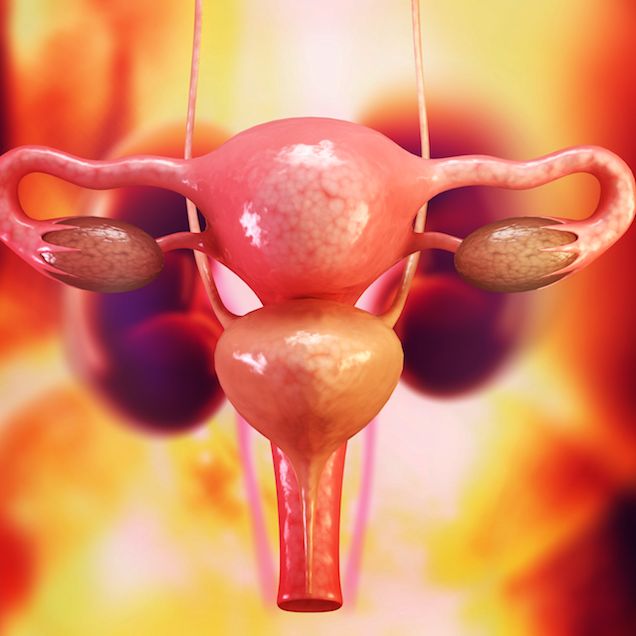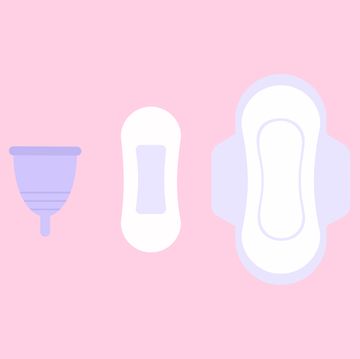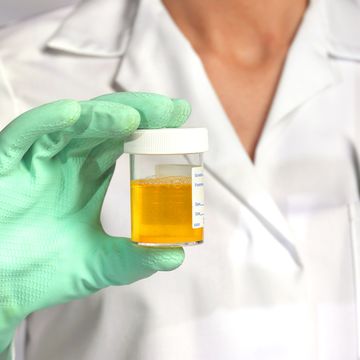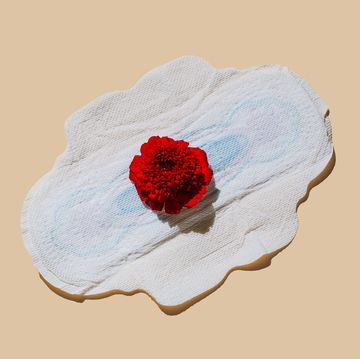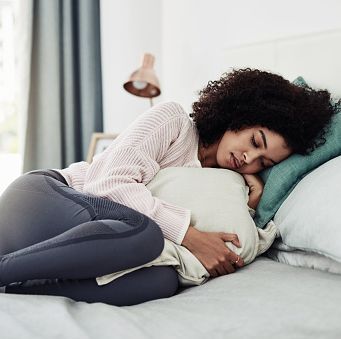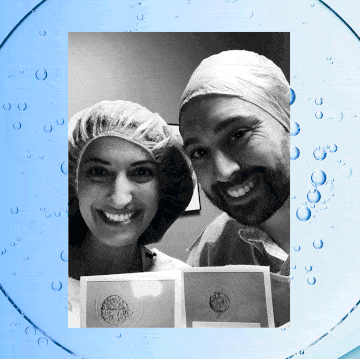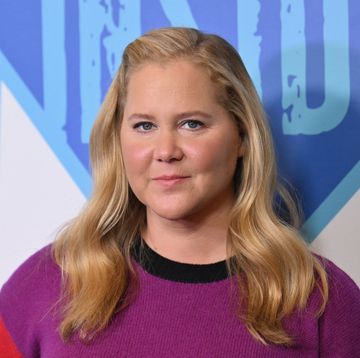Usually the script is simple when you’re sick: You feel crummy. You go to the doctor. A test reveals the issue at hand. But that’s not the sitch with all health conditions. Case in point: polycystic ovarian syndrome (PCOS).
While PCOS is classically associated with irregular cycles or missed periods, it’s also easy to miss: Maybe you blame your crazy cycle on other factors. Or, because PCOS is categorized by a slew of signs and symptoms (and isn’t diagnosed by one test), it might even go unnoticed. In fact, less than 50 percent of women with PCOS know they have it, according the PCOS Foundation. But it’s actually a fairly common ovulation issue. Between five and 10 percent of menstruating young women have it, says Mary Jane Minkin, M.D., a clinical professor of obstetrics and gynecology at Yale University School of Medicine. Here’s what you need to know about the disorder:
There’s a Group of Symptoms
Just like there's no one test to diagnose PCOS, there’s no one symptom that signifies its presence. Irregular or absent periods can be a sign. Acne, excessive hair (a.k.a. hirsutism, which is when you develop hair in so-called male pattern areas), infertility, and weight gain are also all linked with PCOS, says Mamta Mamik, M.D., an assistant professor of obstetrics, gynecology, and reproductive science at the Icahn School of Medicine at Mount Sinai. So are metabolic issues like high cholesterol, high blood pressure, and even diabetes.
If any of this sounds familiar, check in with your gynecologist, suggests Minkin. Many times, docs will order blood tests to look for wonky levels of sex hormones, like too much testosterone, she says. Your ovaries and adrenal glands make testosterone normally, but if you have PCOS, you make increased amounts. You might also have abnormal glucose levels, she says.
RELATED: Why I Quit Waxing My Face and Decided to Embrace My Beard
...But Cysts Aren’t Everything
Despite its name, not all women with PCOS have cysts on their ovaries, says Mamik. If you do have cysts, they’re often described as a string of pearls—and if they burst, it can be super-painful. The cysts are sometimes a result of a woman's eggs not being released over time, and can be ID'd through an ultrasound.
It’s a Weighty Matter
PCOS may be genetic, says Mamik. Some research suggests if your mom has it, there’s a 50 percent chance you could, too. But the condition is also associated with being overweight, says Minkin. “One of the conundrums is whether or not you develop PCOS and then gain weight or gain weight and then develop PCOS,” she says. “Probably, both can happen.” If you do have PCOS and are overweight, a weight loss plan (good nutrition and an exercise program) is vital, says Minkin. “Weight loss really helps to normalize the abnormalities,” she says.
RELATED: 7 Common Reasons Your Vagina Is Itchy Beyond Belief
Treatment Options Vary
Here’s the good news: “In general, the treatment is quite straightforward,” says Minkin. Beyond addressing any underlying conditions like blood sugar abnormalities or diabetes, your course of action generally depends on where you are in life. If you’re not trying to get pregnant, the easiest remedy is usually the Pill. Oral contraception takes control of your ovaries, forcing them to stop making excess testosterone and controls your periods, says Minkin.
See a baby in the near future? While PCOS can be linked with trouble conceiving, it doesn't mean you’ll never be able to get knocked up, says Mamik. A gynecologist can start you on a medication called Clomid, which gets you ovulating. “Success rates are quite high,” says Minkin. Ultimately, everyone is different, and your ob-gyn can help you come up with the best plan for you based on your medical history and condition.

Cassie Shortsleeve is a skilled freelance journalist with more than a decade of experience reporting for some of the nation's largest print and digital publications, including Women's Health, Parents, What to Expect, The Washington Post, and others. She is also the founder of the digital motherhood support platform Dear Sunday Motherhood and a co-founder of the newsletter Two Truths Motherhood and the maternal rights non-profit Chamber of Mothers. She is a mom to three daughters and lives in the Boston suburbs.
